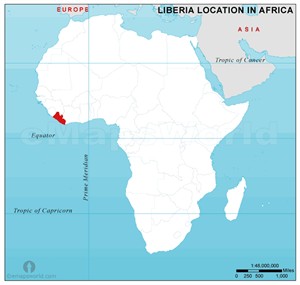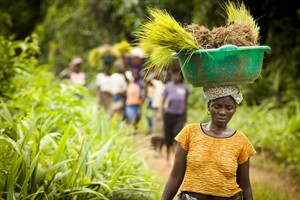Translation and Localization for Africa: Liberia
Liberia is strategically located along the coast of West Africa. The country’s name, meaning “liberty”, refers to the nation’s origin as a colony of free people repatriated to Africa from the United States in the early nineteenth century. In Latin, Liberia means “land of the free”.
Liberia has had a stable democratic government since 2003. Liberia’s business sector is largely controlled by foreigners of Lebanese and Indian descent. There also are limited numbers of Chinese engaged in agriculture.

Liberian Demographics
- Liberia’s population is over 4 million (World Bank 2013).
- Almost half of their population (49.5%) are urban.
- Liberia ranked number 126 in the list of countries in the world by population (2016).
- Africa’s oldest republic is Liberia.
- Liberia became popular in the 1990’s by a long-running, ruinous civil war and its role in a rebellion in bordering Sierra Leone.
- The country’s most populous city and capital is Monrovia.
- Unemployment is currently about 3.80%.
Liberian Languages
- The official language of Liberia is English.
- Liberia is a multilingual country where more than thirty indigenous languages are spoken.
- The major Liberia linguistic categories: Mande, Kwa and Mel, all of these groups belong to the Niger-Congo family of African languages.
- Mande speakers are primarily in the northwest and central areas of the country, Kwa speakers are in the south and along the northern border and the Mel speakers are in the northwest coast.
The primary food staple is rice.

Liberian Culture
- The official religion is Christianity, Islam is practiced in the north and Animist beliefs still exist.
- Liberian has large families due the Islamic religion’s acceptance for men to marry four women, usually wealthy men adopted this described.
- Dress should be casual and practical.
- It is inappropriate to send flowers or chocolates as a thank you, a thank you letter is acceptable and required.
- The Liberian flag has one white star and eleven stripes of white and red, the red and white stripes represent the Liberian Declaration of Independence and the white star symbolizes the African unity.
- The official currency is the Liberian dollar (LRD).
- The current exchange rate between (LRD) and (USD) is 0.012 of one US dollar.
- Only 4.6% of Liberia’s population use the internet.
- Liberia is progressing by installing information and communications technology (ICT) infrastructure which can give support for ecommerce platforms.
- The cost of living is high.
Liberia’s Future
- Liberia’s GDP has risen rapidly in recent years.
- Post-Ebola and Post-UN, Liberia is finding their “new normal”.
- Contested presidential and legislative elections scheduled for October 2017, could result in the country’s first ever peaceful regime change.
- According to the World Bank, Liberia is classified as one of the world’s top reformers, taking into consideration oil and natural gas within their territorial waters.
- Offshore oil discovery plays an important role in development in the country’s energy and economic future.
- There are quite a few international companies currently either operating in the country or exploring the extensive natural resources, from gold, diamonds and iron ore, to timber, rubber and oil palm, to coastal marine life.
Summary
Liberia is a stable Republic with a history of international trade and business that dates back to the 1600s. However, with the United Nation’s exit in June 2016 and heavily contested presidential and legislative elections slated for October 2017, the future of Liberia’s peace, national security and goverment remain uncertain.
